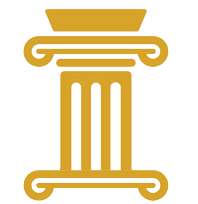Property laws in Thailand are designed to regulate the ownership, sale, and use of land and buildings in the country. These laws are particularly important for foreigners interested in investing in Thai real estate, as there are specific restrictions and requirements. Here’s a brief overview of the key aspects of Thai property laws:
1. Land Ownership
- Foreign Ownership Restrictions: Generally, foreigners are not allowed to own land outright in Thailand. However, there are exceptions, such as land purchased for residential purposes through a limited company or through investment promotions approved by the Board of Investment (BOI).
- Leasehold: Foreigners can lease land for up to 30 years, with an option to renew for additional periods. Lease agreements can be registered with the Land Department for leases exceeding three years.
2. Condominium Ownership
- Foreign Quota: Foreigners can own up to 49% of the total area of a condominium project. This ownership is outright as opposed to leasehold.
- Title Deed: The title deed (Chanote) is the most secure type of land title and the only one that allows for the registration of ownership without disputes.
3. Property Acquisition by Marriage
- If a foreigner is married to a Thai national, the couple can purchase land, but the land must be registered in the Thai spouse’s name. A declaration is usually required stating that the funds used are the Thai spouse’s separate property.
4. Usufruct Interest
- A usufruct interest gives the right to use the land and enjoy the fruits of the property (e.g., rental income) for a set period, typically for the life of the holder.
5. Mortgages and Financing
- Foreigners generally find it challenging to secure mortgage financing from Thai banks. Mortgages are more commonly obtained by establishing a Thai company to hold the property, or by securing finance from overseas.
6. Property Taxes and Fees
- Transfer Fee: Typically 2% of the registered value of the property.
- Stamp Duty: Payable if Specific Business Tax (SBT) is not applicable, at a rate of 0.5%.
- Specific Business Tax (SBT): Applicable if the property is sold within five years of purchase, at a rate of 3.3% including the municipal tax.
- Withholding Tax: Calculated on a sliding scale based on the appraised value of the property.
7. Building and Construction Permits
- Construction of buildings requires a permit from the local municipality. The building regulations control the type of buildings allowed in specific areas, building coverage ratios, and height restrictions.
Navigating these laws often requires legal expertise, particularly for foreigners unfamiliar with the complex regulatory environment. Legal advice is essential to ensure compliance and to protect investment interests in Thailand’s real estate market.

